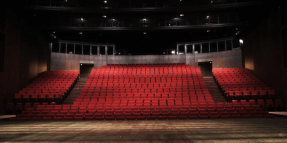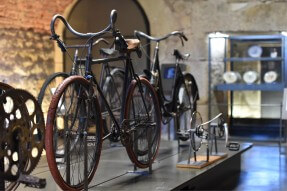ARTS (Arts, Research, Territories, Knowledge) was born from the desire of the Jean Monnet University of Saint-Etienne to develop a research and training dynamic about the arts and the societal, territorial, ethical and political questions they raise, in their own way, enlightened by a historical and epistemological approach.
ARTS is based on an original association between the Jean Monnet University, the art schools of the Lyon – Saint-Étienne area and cultural institutions. The consortium thus formed, resolutely open, is built on an ambition of academic and cultural influence.
Refusing to compartmentalise, ARTS doesn’t define itself by a list of “arts” (liberal, mechanical, “beautiful”…) whose history shows the fluctuations, but places at its centre the approach, the gesture and the stakes of creation, in an interdisciplinary and transhistorical approach. The arts are a way of understanding the world through the questions they ask and the way they ask these questions.
Knowledge and practices
 The word art contains in itself an articulation between knowledge and techniques and methods, between theoretical vision and the skill of gesture or speech. ARTS thus invites to cross methodological and critical approaches, knowledge and practices, research and creation, within an active collaboration between universities, art schools and cultural institutions.
The word art contains in itself an articulation between knowledge and techniques and methods, between theoretical vision and the skill of gesture or speech. ARTS thus invites to cross methodological and critical approaches, knowledge and practices, research and creation, within an active collaboration between universities, art schools and cultural institutions.
Upstream and downstream of creation, reflections will thus be able to focus on the conditions of production, transmission and conservation of works and heritage.
The challenges of digital technology will be given particular attention in their training, research and creative dimensions, drawing on the expertise of the Lyon-Saint-Étienne site in the fields of digital humanities, digital arts, images and artificial intelligence.
Interdisciplinarity and decompartmentalisation
 ARTS encourages encounters, dialogues, convergences and confrontations between the arts as many views and questions are raised.
ARTS encourages encounters, dialogues, convergences and confrontations between the arts as many views and questions are raised.
ARTS is based on an assumed interdisciplinarity, understood as a scientific practice based on demanding disciplinary knowledge that must be crossed without diluting them. This interdisciplinary practice is based on a concerted method and willingly asserts its exploratory character and creative potential. It will nourish the educational projects that may be developed in this framework.
In this way, ARTS wishes to contribute to a better professional integration of the students and students of the arts schools, by relying on demanding academic research, by developing modes of teaching that combine interdisciplinary knowledge and practice with the support of a network of cultural institutions.
A flexible structure
ARTS is structured in four scientific areas, each of which combines knowledge and practice and encourages interdisciplinary approaches. On the one hand, these axes will give greater visibility to the many collaborative projects that exist between the different laboratories and partners. On the other hand, they are intended to give rise to new scientific and educational projects.
- Living, representing, imagining
- Art, childhood, territory
- Arts x sciences
- Creation, training, research